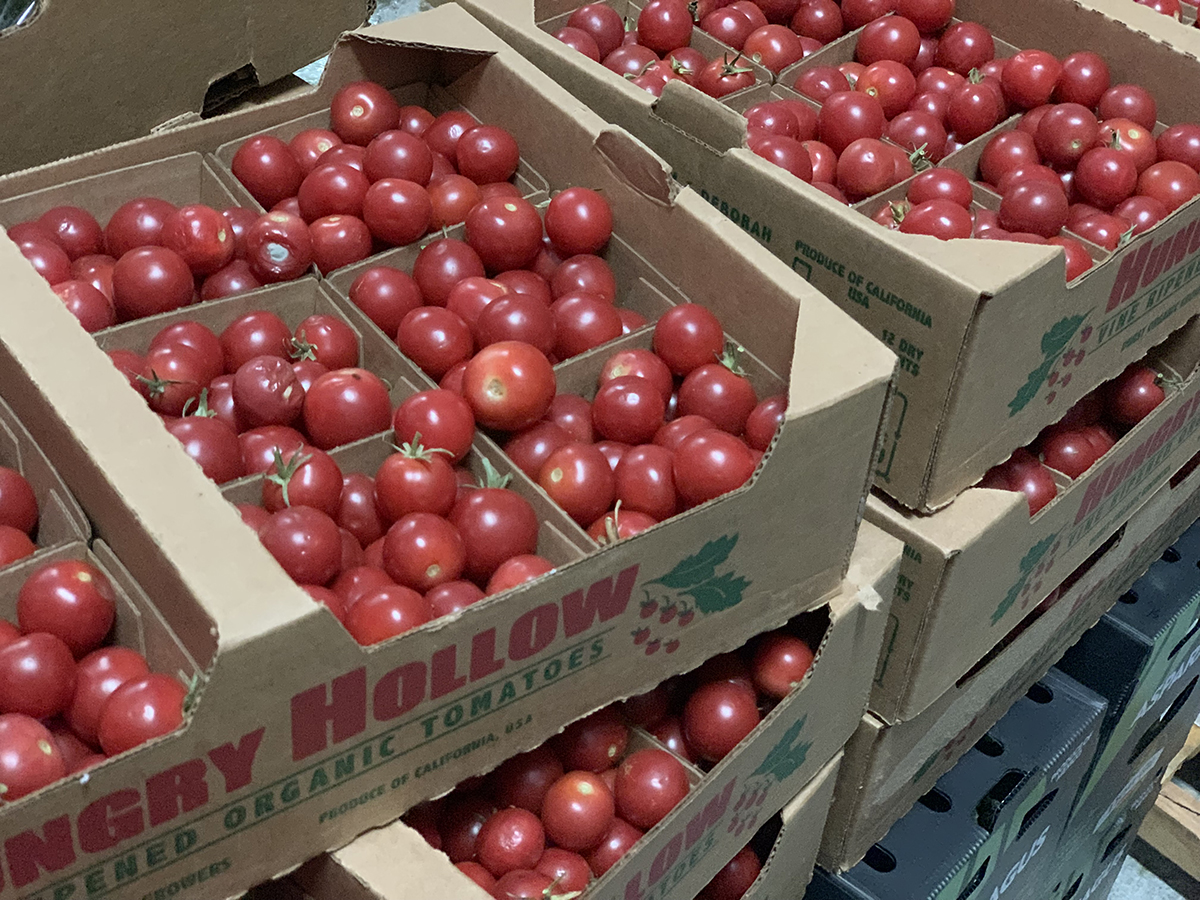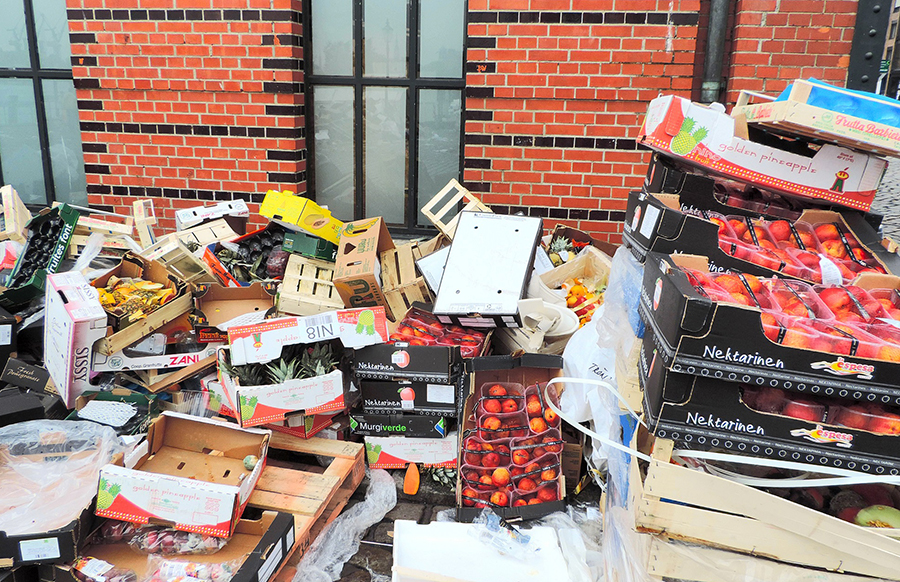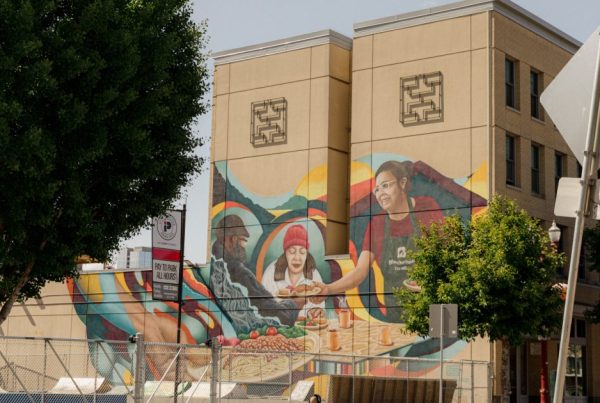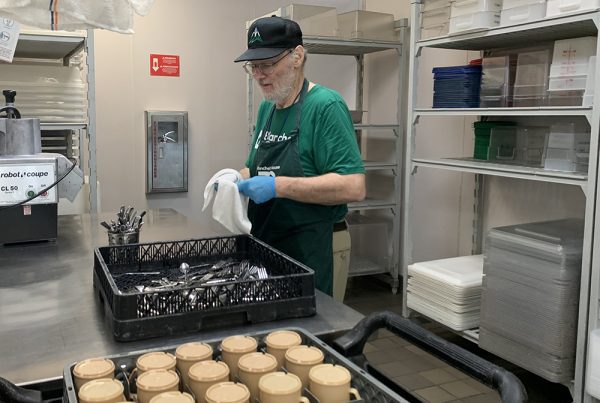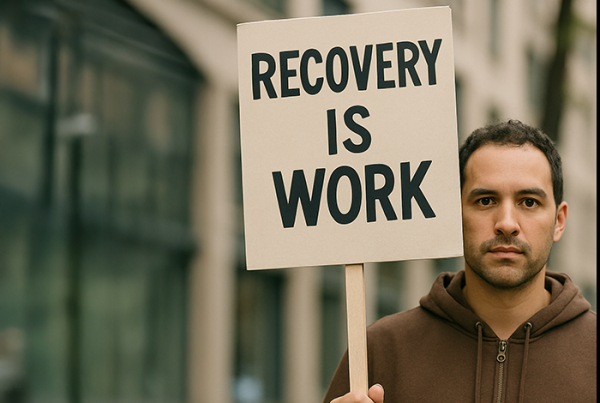The federal Good Samaritan law protects people and businesses who donate food.
Around 53 million Americans sought assistance from food banks to feed their households in 2021 according to Feeding America. Yet we throw away tons of good food. It’s a logistical problem that can be helped by encouraging people to donate surplus food rather than toss it in landfills.
Liability is a major concern for many potential food donors. And people consuming donated food need to be protected and know that what they are eating is safe. Empowering individuals and businesses to donate food is what the federal Good Samaritan Law of 1996 is designed to do.
It can be confusing for many of us to know which foods are ok to donate and under what circumstances. This article aims to help you better understand the laws designed to protect food donors and the public consuming that food.
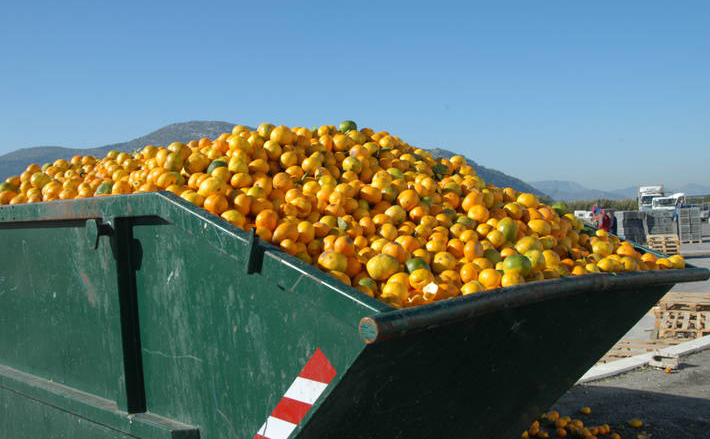
Oranges in a dumpster at a farm.
How Much Food Does America Waste?
Today in the U.S. around 40% of the nation’s food supply is wasted according to the U.S. Food and Drug Association. We waste more food than any other country in the world–nearly 80 billion pounds every year reports Recycle Track Systems.
That equates to around 219 pounds of food waste per person in the U.S.
Why do Businesses Throw Away Excess Food?
Every day businesses, families, or anyone could be wasting food for a variety of reasons. In the case of grocery stores, the issues stem from the high volume of deliveries that most stores have to take in and make room for reports Insider. There is not enough room in the store for all of the available products. Some things have to go. Even unexpired foods are disposed of if space needs to be made for incoming shipments.
The same Insider article finds that although some businesses and individuals alike may have thought about donating their leftovers, they are concerned about liability when they give food away for free. Plus, many believe that they can be sued if the food or beverage that they provide ends up getting someone sick. Even if it was previously determined that the food was safe to consume.
People Who Donate Food are Protected by Law
Under the Bill Emerson Good Samaritan Food Donation Act of 1996 (42 U.S. Code § 1791), this federal law protects anyone from liability when donating food in “good faith” to a non-profit organization that feeds people in need.
Additionally, the act provides limited liability protection for both civil and criminal. Namely for those who distribute food and groceries, such as food banks and soup kitchens.
“In order to receive protection under the act, a person or gleaner must donate in good faith apparently wholesome food or apparently fit grocery products to a nonprofit organization for ultimate distribution to needy individuals. It does not cover direct donations to needy individuals or families. The act also provides protection against civil and criminal liability to the nonprofit organizations that receive such donated items in good faith,” writes Jean Buzby, of the USDA Food Loss and Waste Liaison.
Law Encourages People to Donate Food
The law was signed to encourage businesses and individuals alike to donate their excess food. With overstocking and excess shipments of food, the opportunity is there for businesses and consumers alike to make sure that all extra food does not go to waste.
In addition, the Bill Emerson Act also sets a standard of how to give when able and lessens the worry of any potential donors.
“All fifty states have additional food donation statutes that limit food donors’ liability. These laws currently vary widely, such as by who (i.e., donors, nonprofit organizations), and what foods and food products receive coverage. The Department of Justice (DOJ) Office of Legal Counsel has interpreted the Act as preempting state laws that provide less liability protection to donors,” continues Buzby, of the USDA.
A full list of the Good Samaritan laws can be found here and here.
Moreover, it’s important to remember some of the key terms that tie to the law to fully comprehend its extent. For example, food, donate, gleaner, and grocery product all have their own definitions to help guide any potential donors to take action comfortably.
Who receives coverage under the Good Samaritan Act?
Below you’ll find a chart from the USDA explaining who receives coverage under the law when donating food.
Entity |
Coverage |
| Backyard gardeners | Donations from backyard gardeners receive coverage under the broad definition of “person,” which includes individuals. |
| Farmers | The act expressly covers farmers. |
| Gleaners | The act expressly covers gleaners. |
| Restaurants, retail grocers, and manufacturers | The act expressly covers donations by restaurants, retail grocers, and manufacturers. Donations by a food service company receive coverage under the broad definition of “person,” which includes corporations, partnerships, organizations, and associations. |
| Caterers | The act’s definition of “person” expressly covers donations by caterers. |
| Food trucks | Donations by a food truck receive coverage under the broad definition of “person,” which includes corporations, partnerships, organizations, and associations. |
| School food authorities and institutions of higher education | Yes. These entities are expressly included in the definition of “qualified direct donors” in the Emergency Food Assistance Act of 1983. |
| Food banks | The act expressly covers donations by nonprofit food distributors. |
| Kitchens that create meals from donated food and then sell the meals at extremely low prices in underserved neighborhoods | No. For a donation to receive coverage, the ultimate recipients of the food or grocery items must not give anything of value in exchange. |
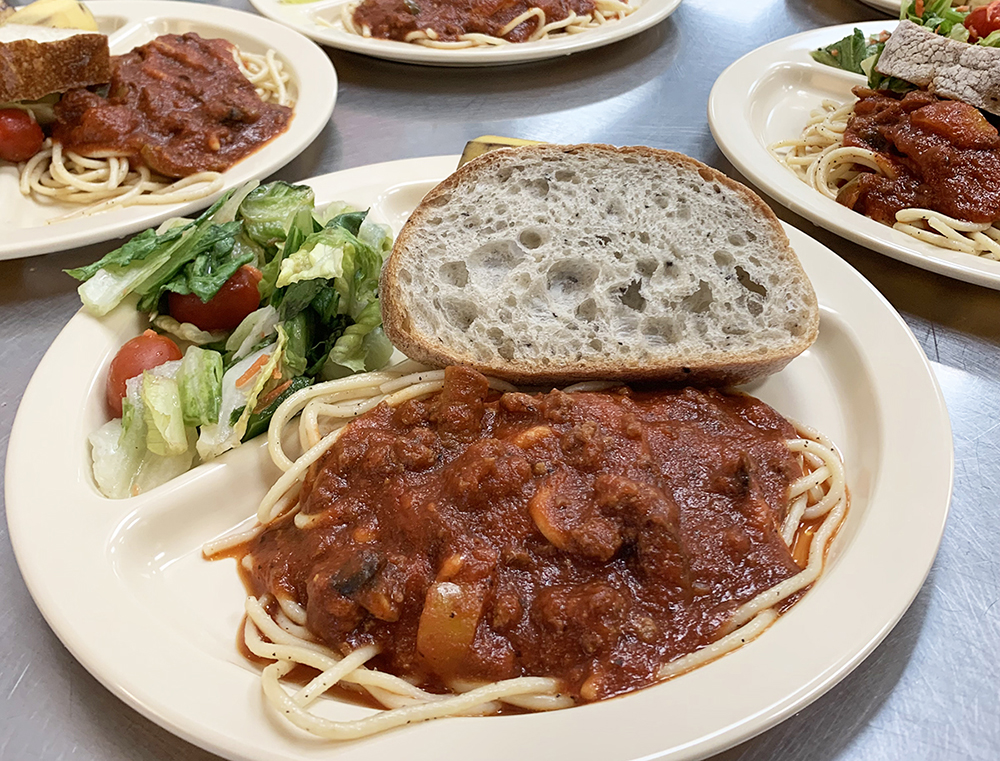
Plates of dinner using donated ingredients at Blanchet House.
Nonprofits Rescue Surplus Food
Many nonprofit organizations have found ways to salvage some of this surplus food and get it to people who need it.
One organization, Blanchet House, a free cafe in Portland takes in an average of 30,000 pounds of soon-to-expire food from local restaurants, grocery stores, wholesalers, and bakeries every month.
Rescued foods allow Blanchet House to provide thousands of meals daily to people feeling food insecure. Included are those who may be houseless, living in their cars, and unable to cook for themselves because of disabilities. In addition, people who have limited income for food. Regardless of the reason, anyone can eat in the organization’s free cafe.
Donate These Types of Food With Law
Some examples of foods that Blanchet House can take in include:
- Unopened catering, and
- Unopened unexpired cans,
- and packages.
- Fruit
- Vegetables
- Dairy products
- Bread
- Unexpired meat
Because of these laws, many nonprofits can now accept donated food. In Portland, we have quite a few local nonprofit organizations that provide food to those in need of a meal.
A list of nonprofits in Portland that accept donated food:
- Blanchet House
- Urban Gleaners
- Portland Rescue Mission
- Oregon Food Bank
- SnowCap Community Charities
- Sunshine Division
The Good Samaritan Law is here to protect food donors who give with good intentions, eliminate waste of food, and most importantly get food to people who need it. It is possible to feed people struggling to access nutritious meals by taking in donations of surplus food from grocery stores, businesses, and wholesalers.
-Written by CJ Smith. CJ is an intern with Blanchet House.
Please know that the information presented is not a guidance document and does not constitute legal advice or create an attorney-client relationship.














